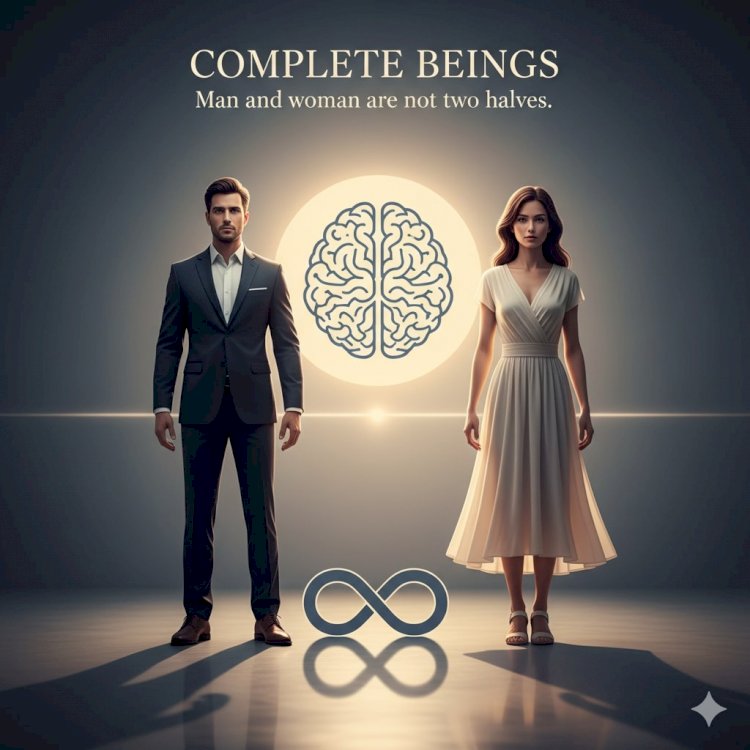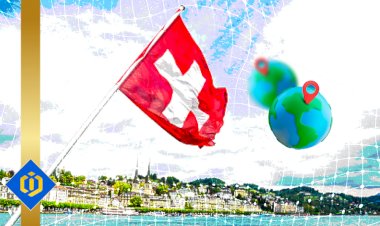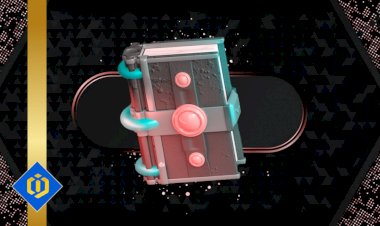Man and woman are not two halves. Both are complete beings.

A rereading of Verse 34 of Surah An-Nisa through a civilizational, philosophical, mystical, scientific, and transcultural lens
By Dr. Pouyan Ghamari
At no time in history has understanding the relationship between men and women been as complex and important as it is today.
Modern society is caught between two extremes.
One side of the world proclaims male superiority.
The other considers removing the role of men as the path to women’s liberation.
And the truth lies far from both.
Verse 34 of Surah An-Nisa—misinterpreted for centuries—reveals a very clear truth when read through the lens of today’s human understanding, linguistics, psychology, the history of civilizations, and the codes embedded in nature.
The Verse
الرِّجَالُ قَوَّامُونَ عَلَى النِّسَاءِ بِمَا فَضَّلَ اللَّهُ بَعْضَهُمْ عَلَى بَعْضٍ وَبِمَا أَنفَقُوا مِنْ أَمْوَالِهِمْ
Ar-rijālu qawwāmūna ‘ala an-nisā’i bimā faḍḍalallāhu ba‘ḍahum ‘alā ba‘ḍin wa bimā anfaqū min amwālihim.
A precise and clear meaning, without historical distortions
Qawwāmūn means the pillar, the one who takes responsibility, the one who maintains and supports.
Faḍl means difference in ability, an operational distinction, not a value-based superiority.
Bimā anfaqū means the role is based on economic contribution, not gender.
The verse is not encoding that men are more important.
The verse is encoding that whoever carries responsibility becomes the pillar.
If the woman carries the weight of life, she is the qawwām.
If the man is the provider, he is the qawwām.
If both share the responsibility, both are qawwām.
The Qur’an’s explicit affirmation of the existential equality of men and women
“Created you from a single soul”
Both begin from the same essence.
“Whoever does righteous deeds, male or female”
Value is based on action, not gender.
“The most honored among you is the most mindful and righteous”
Superiority lies in awareness and goodness, not biological identity.
These verses show that the Qur’an does not say men are superior.
It says roles shift based on ability and responsibility.
The Torah and the Gospel teach the same principle
Torah – Genesis 1:27
“God created humankind… male and female He created them.”
No indication of superiority.
Gospel – Galatians 3:28
“There is neither male nor female… for you are one.”
Neither gender holds inherent superiority.
Both share one essence in value.
All Abrahamic religions carry the same message:
Humanity is the value—not gender.
Philosophy and world mythology say the same
Ancient Iran
Woman: guardian of life
Man: guardian of direction
Difference in role, not value.
Viking cultures
Woman: the Norn, writer of destiny
Man: executor of will
Both complementary.
India and the Upanishads
Purusha: consciousness
Prakriti: creation
Incomplete alone
Complete together.
Ancient China
Yin and Yang: two poles of one energy
Not about opposition
But complementarity.
Pythagoras
The human soul has no gender.
The body is only an instrument of energy.
What metaphysics tells us
Woman is the energy of depth.
Man is the energy of direction.
Depth alone is not enough.
Direction alone is not enough.
The world gains meaning through the union of the two.
Numerology and Pythagorean symbolism
The number two
At a surface level means duality.
At a deeper level means participation.
Two means two circuits joining—moving the world into motion.
Why this verse causes challenges today
Because a line about responsibility
Was mistakenly turned into value.
And a role originally tied to economics
Was mistakenly tied to gender.
Yet the text of the verse is very clear:
Not superiority.
Responsibility.
Role.
Dynamism.
And roles shift depending on life circumstances.
So what is the truth
Woman is not half of man.
Woman is not a different kind of being.
Woman is a complete human.
Man is also a complete human.
Both have full capacity.
Both have intellect.
Both have spirit.
Both have responsibility.
Both have the power to change the world.
And on the level of the soul, they are fully equal.
The final message for today’s world
If men and women assign their roles not by gender
But by ability
Awareness
Responsibility
Energy
And the path of life
The world will grow stronger in every way.
Verse 34 of Surah An-Nisa
Does not proclaim male superiority.
It describes a structure of responsibility—
Not a fixed order,
But a fluid one, shaped by circumstance.
A practical guide for the modern human
Anyone who wishes to be qawwām,
Does not need to be a man.
Does not need to be a woman.
They need to do three things:
-
Carry responsibility better than others.
-
Provide for part of life’s needs.
-
Have the capacity to manage pressure.
Whoever possesses these three
Is the qawwām— wchich means the pillar.

 content-team
content-team 


















